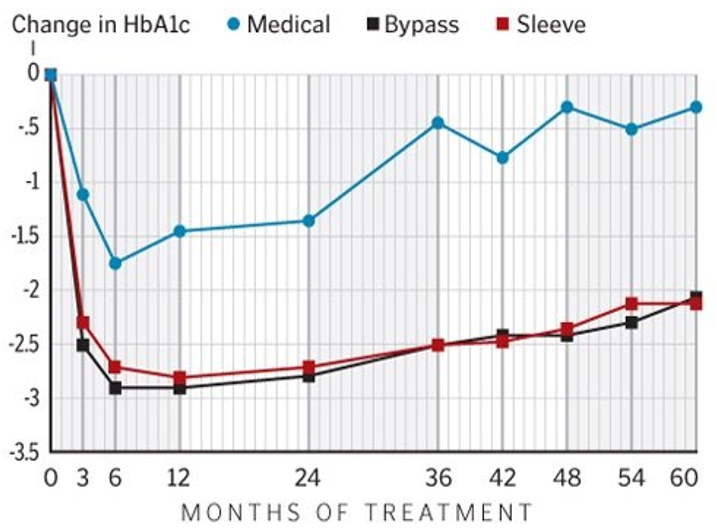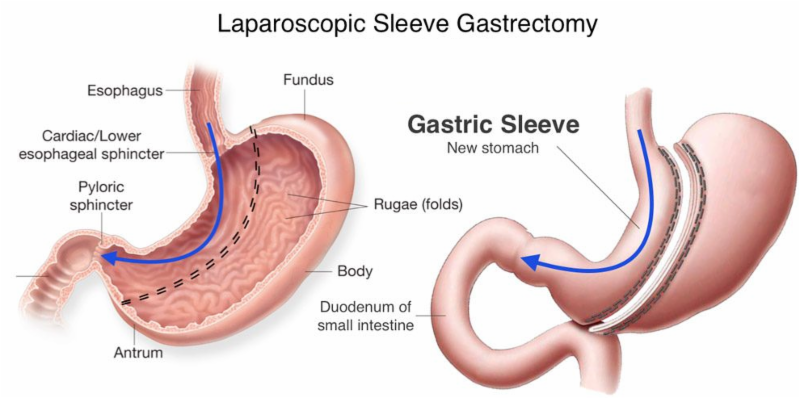Intensive medical management of Type 2 diabetes at the Cleveland Clinic consists of intensive tight control medical management with oral and injectable medication including GLP-1 agonists, together with dietary counseling and modification, an exercise program and support groups. This strategy was compared to metabolic surgery in a randomized, prospective controlled trial called the Stampede Trial published in the New England Journal of Medicine.
150 patients with BMI’s of 27-43 were randomized to either intensive medical management or metabolic surgery to treat Type 2 diabetes. Each year after the initiation of the trial, the authors reported on the control of diabetes and measures including weight, complications, diabetes, and Hemoglobin A1c.

![]()
In the surgical arm, patients were further randomized to either laparoscopic sleeve gastrectomy (LSG) or laparoscopic Roux en Y gastric bypass (LRYGB). As the above illustration demonstrates, patients in the surgical arm experienced significantly superior control of diabetes with a strong fall in hemoglobin A1c, and both surgical techniques were equally successful. Many patients experienced complete remission of diabetes. In addition, there was a significant, lasting superior result in body weight, insulin use, Triglycerides, HDL, and Quality of Life measurement among the surgical group compared to intensive medical patients.
Laparoscopic sleeve gastrectomy (LSG) remains the safest , and most effective treatment of Type 2 diabetes among individuals with obesity. That includes medications, injections, insulin, and intensive multidisciplinary programs. In the last five years our LSG patient population of more than 1,500 people has enjoyed a mortality risk of 0.0% and a risk of the major complication of leak at 0.0%. Because the weight loss and diabetes remission rates are equivalent to gastric bypass, but the safety record is better and complications lower, sleeve gastrectomy remains the best treatment for most people with obesity and diabetes. We still advise a maximum long-term multidisciplinary approach to maximize long term remission.

![]()
For people who do develop a recurrence of diabetes or weight regain years later, the sleeve procedure is highly compatible with a simple surgical revision involving the duodenum (SADI procedure) that once again creates remission of diabetes and massive weight loss without an invasive surgery.



